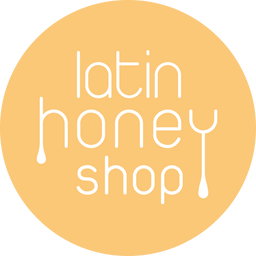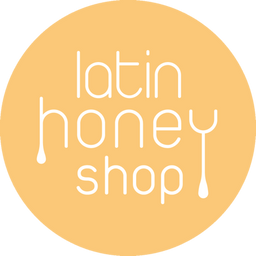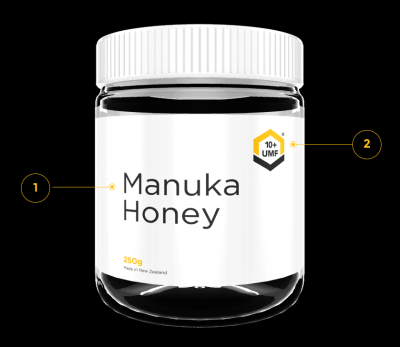
Is manuka honey the world's best honey or is it a marketing scam?
Is there any scientific evidence that manuka honey is better than other honeys?
Is manuka honey worth £100 a jar?
What exactly is the big deal about manuka honey?
One of the most common questions that we are asked is: do you sell manuka honey?
Kim Kardashian, Scarlett Johansson, Novak Djokovic... These are just some of the celebrities known to eat or use manuka honey.

If a celebrity with 45 million followers eats a particular honey, is that enough reason for a producer to sell that honey for £100 a jar? More importantly, is that enough reason for you to eat it?
Manuka honey is a type of honey that comes from bees feeding on the manuka tree (Leptospermum scoparium), a tree that grows wild in Australia and New Zealand.

Manuka honey has been used by native Maori tribesmen in New Zealand for centuries.The abundance of manuka trees in the region meant that manuka honey was the only honey in some parts of New Zealand.
Manuka honey was not famous until 1981. In that year, biochemist Dr.Peter Molan at the University of Waikato in New Zealand did some research on manuka honey and found that some manuka honeys display an antibacterial property called non-peroxide activity.

Dr Molan went on to develop his research after receiving funding from the New Zealand Honey Industry Trust. To distinguish different types of manuka honey, he invented a grading system called the UMF (Unique Manuka Factor).
So manuka honeys with non-peroxide antibacterial activity became graded with numbers such as 5+, 10+, 15+, 20+ etc. The idea being that the higher the number, the higher the non-peroxide activity in the honey.

However, this grading system was only used to distinguish between different types of manuka honey, not to compare manuka honey to other honeys.
By way of example, imagine car company Toyota invents a scheme called the UTF (Unique Toyota Factor) for buyers to decide which Toyota is better than other Toyotas.
So Toyota gives the Toyota Prius car a UTF of 5+, the Avensis a UTF of 10+ and the RAV4 a UTF of 20+. Using this system, it is easy for customers to distinguish between different types of Toyota cars.

However, customers cannot use this grading system to compare Toyota to other cars, such as BMWs and Mercedes... because BMWs and Mercedes cars do not have a Unique Toyota Factor... because they are not Toyotas!
In the same way, buying a 10+ manuka honey is probably better than buying a 5+ manuka honey but is it better than buying another raw honey altogether? Perhaps one from a different tree and from a different plant of the world?
Of course not. Only manuka honeys have a UMF value. Eucalyptus honey, mountain honey, rainforest honey... none of these have a Unique Manuka Factor because they are not manuka honeys!
All raw organic honeys have powerful antibacterial activity, enzymes and living nutrients that are similar or better than manuka honey. The key word is raw.
Raw (unprocessed, unpasteurised, unfiltered) organic honey is better for you than commercial manuka honey because most commercial manuka honey has been heat-treated and pasteurised.
Processing honey in this way removes most of the goodness of honey.
It does not matter what the UMF value of manuka honey is, if it has been heat-treated, it is nowhere near as good as raw honey.
Any honey without the word "raw" on the label has been heat-treated, whether it sells for £1.50 a jar or £150 a jar.
When it comes to raw versus raw, raw manuka honey is good honey but there is no conclusive scientific evidence that raw manuka honey is better for you than raw other honey.
In fact, there are many scientific studies that have shown that other honeys have better antibacterial activity than manuka honey. [1]

A study published by the University of Western Australia in March 2017 found that several other honeys , e.g. eucalyptus honey, had similar or better antibacterial properties than manuka honey.[2]
The New Zealand Government has invested heavily in marketing manuka honey so it is no surprise that many people believe that manuka honey is superior to all other honeys of the world. There is nothing wrong with that because they are simply promoting their product.
However, you as a customer need to ask yourself what exactly you are getting for your £100 jar of manuka honey that you bought online or from the high street.
When it comes to flavour, many other honeys taste better than manuka honey, which is known for its medicinal, bitter taste.
So in conclusion you don't have to spend £100 on a jar of honey for it to be good for you or your children.
If you want to be sure that honey that you are buying is good for you, just ask yourself three questions before you buy any honey.
1) Is it raw?
2) Is it certified organic?
3) Do I trust the supplier?
If your answer to the above three questions is yes, then go ahead and buy it. You'll be fine!
We do not sell manuka honey because we only specialise in raw organic honey from Latin America.
We sell two active honeys: the 20+ Active Raw Organic Coffee Bean Honey from Mexico and the 10+ Active Orange Blossom Honey from Mexico. Both have been independently tested in a laboratory and found to have similar or better peroxide antibacterial activity to manuka honey.





